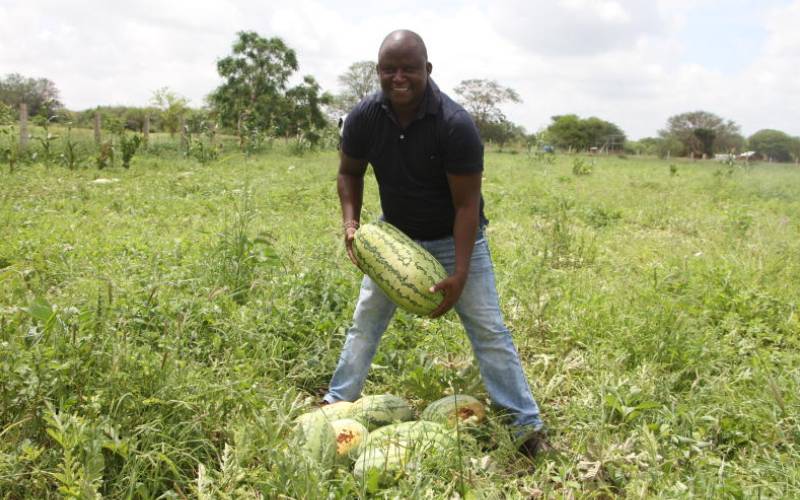
Mr Musyoka Kivungi, a watermelon farmer shows some of his produce at Ndithini village in Makueni county. [Philip Muasya, Standard]
When Musyoka Kivungi settled at Ndithini village, one of the driest and harshest parts of Kibwezi West in Makueni county, many thought he was crazy. This is because the area was uninhabited and was known for its harsh weather where no plant survived save for indigenous thorn trees and unfriendly thickets that were scattered all over. But it was here where Kivungi bought a huge chunk of land, and quickly put up a home determined to make the area not only habitable but also agriculturally productive. Years down the line, Kivungi would surprise many by turning over 10 acres of his once barren land into a lush green farm and becoming one of the successful commercial farmers in a sun scorched region.